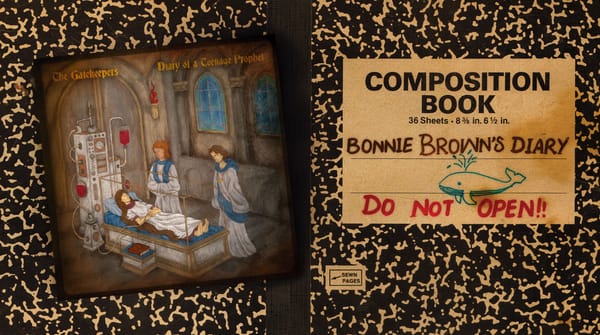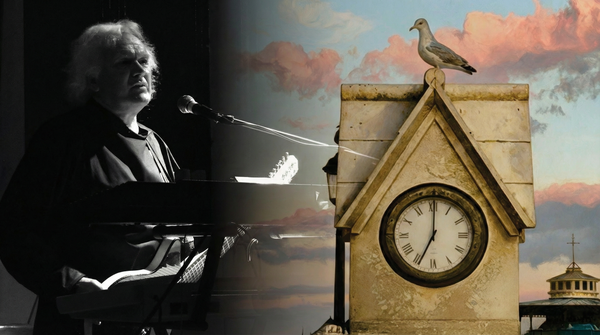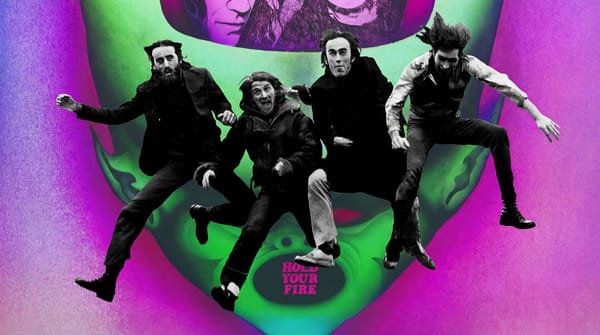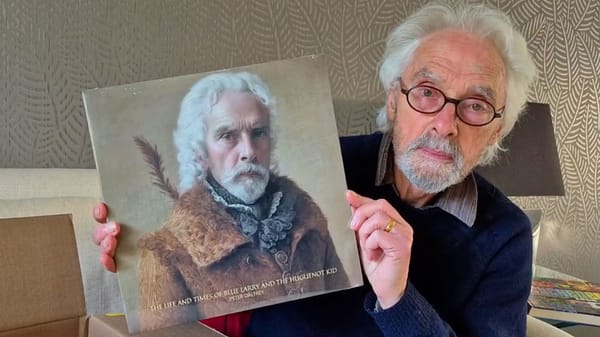Excavating Liverpool's Lost Genius: The Jimmy Campbell Story
Mark Johnston tells us how he discovered Jimmy Campbell and brought his music 'back to life'

Like countless record-obsessed musicians in the pre-internet age, I spent the '80s and '90s hunting down every obscure slab of British Freakbeat and psychedelia I could find. The thrill was in the dig—no Wikipedia rabbit holes or Spotify algorithms to guide you, just pure detective work and dumb luck. Pete Frame's legendary rock family trees mapped out most of the '60s scene, but somehow Jimmy Campbell slipped through the cracks.
When I first discovered The Kirkbys' sublime pop confections in the early '90s, I had no idea I'd stumbled onto one of Liverpool's most underappreciated songwriting talents. It took a year of connecting dots to realize that Jimmy Campbell - the same cat who penned the haunting "Michael Angelo" had also been the creative force behind Rockin' Horse's criminally overlooked masterwork. Those moments of discovery felt like striking gold.
Billy Kinsley proved to be the Rosetta Stone for understanding Campbell's genius. A Liverpool legend in his own right, Billy became Jimmy's champion from their first meeting, when Campbell played him songs on a beat-up acoustic guitar at a party. Kinsley recognized something special immediately- not just Campbell's melodic gifts, but his ability to distill pure emotion into three-minute pop symphonies. Their collaboration in Rockin' Horse produced "Yes It Is," an album that should have been mentioned in the same breath as Badfinger's early triumphs. Both bands were mining similar territory in 1971, crafting Beatles-influenced pop with their own distinctive melancholy.
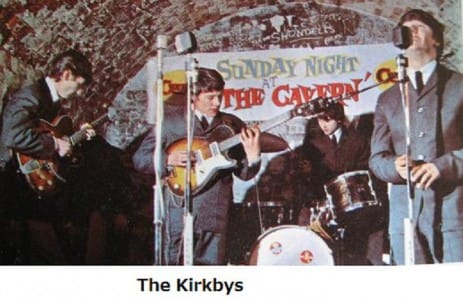
The idea for compiling The Kirkbys and 23rd Turnoff material came from a simple place: I wanted to hear it all in one place. As with every project I've produced, it started with pure selfishness - make the record you want to own. But it evolved into something more meaningful when I realized Campbell was struggling financially. With Billy's blessing and the help of international collectors tracking down rare Finnish pressings, designer Phil Smee's archival expertise, and original manager Keith Mallett's demo acetates, we began piecing together Jimmy's scattered catalog.
The reissue of "Yes It Is" gained momentum when Hal Carter generously donated the original Rockin' Horse master tapes to Jimmy and Billy - a gesture that spoke to the deep respect Campbell commanded among his peers. Even Joey Molland from Badfinger, who contributed to the "Half-Baked" sessions, remained a devoted fan, once gifting me his own cover version of the song. Ritchie Routledge and many other Liverpool legends contacted me with stories, all in awe of Campbell's writing.
Jimmy remained humble throughout, never caring to relive what was or what might have been. In all our conversations, he obsessed over how he didn't like his own recorded versions and was convinced he could go back into a studio and do them right. He was fighting emphysema from too many years of smoking, and I'll never forget an afternoon call out of the blue from Billy. He was sobbing and found it hard to complete the sentence that Jimmy had lost that battle in the hospital that very day. I knew the call was coming and honestly wasn't shocked, but I was saddened and perhaps more so by the outpouring from someone who was a true friend. Billy Kinsley is really the true hero of this story, Jimmy's brother and champion.
Over the past decades, my mission became simple: get every scrap of Jimmy Campbell's known recordings back into circulation. Think Like A Key has compiled a new collection picking up torch. Because sometimes the most important voices are the ones history almost forgot.

